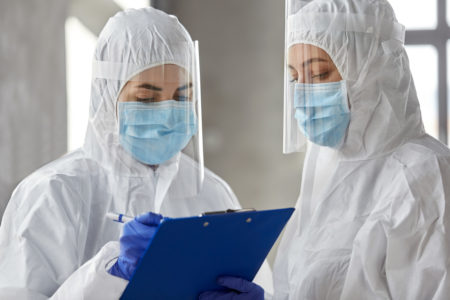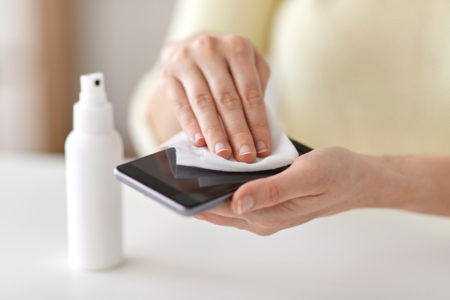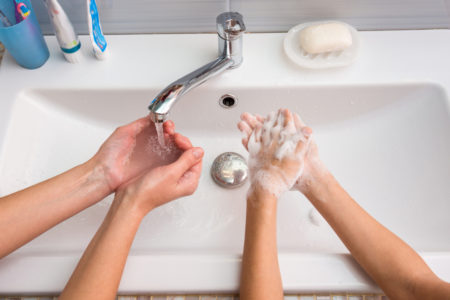The Coronavirus 2020 or COVID-19 chooses your respiratory system as its home of choice. But scientists have found a new, less well-known way that the virus gains access to that home of choice.
At first glance our most important words in this story include lungs, stools, and hands. On first glance, they seem to be unrelated. However, they are closely, even intimately related. Both hands and stools can create routes of transmission. Scientists are looking at new ways the coronavirus 2020 gets a foot-hold to infect your lungs. Surprisingly, the bathroom can serve up COVID-19, as well as other types of infections. Let’s take a look at a fascinating study that combines what you know with some new medical information you might not know.
The Coronavirus 2020 (COVID-19) Connection between Lungs and Hands: Easy to Understand

New Studies Reveal More Ways COVID-19 Enters the Body. Learn the Ugly Secret: Fecal-Oral Transmission.
We know unwashed hands can carry the now legendary coronavirus 2020 to the face or to the mouth. However, new research has brought in anther route of transmission for the infection. Additionally, we have learned a great deal more about the value of meticulous hand-washing. And yes, there will be more about the importance of hand-washing later in this article. However, we must first discuss the latest studies that claim the coronavirus has a new route by which it can attack you. FLASS issues this article as a very gentle warning.
Coronavirus 2020 Does Not Play Pretty—or Clean
We are all aware we can get COVID-19 when an infected person coughs in the air near us. But scientists are studying another way the coronavirus can transmit COVID-19 to you. And FLASS feels this method must be announced, so people can better protect themselves. This new method of transmission is a little off-putting if not gross. That explains why you might not have heard about the recent study.
Basically, if this study is confirmed by future studies, “we know that it would mean that people could get sick by ingesting tiny amounts of stool from others who are infected. Other diarrhea diseases that pass from person to person this way include cholera and hepatitis.” We are understanding new details about the corona virus every day.
The Fecal-oral Route of Transmission
This disgusting manning of infection even has a name: It is called the Fecal-Oral Route of Transmission. You touch your face after contacting a microscopic particle of stool, also known as bowel movement or feces. Perhaps this happens at a public restroom where someone with COVID-19 has had a bowel movement. Or perhaps an infected person had a bowel movement and touched the counter without washing his hands well. Then you touch it. A few minutes later, you touch your face.
Some Unwelcome Truth about Stool (Feces) in Your World
David Brett-Major, MD, an infectious disease specialist at the University of Nebraska Medical Center stated, “The world is covered in a thin veneer of stool…” He has proven this with research that has found the bacteria from stool on absolutely everything we touch in our daily routine.
- Yes, we are sad to inform you that the microscopic, “thin veneer” of stool is probably on many objects you own, from computer keyboards, the soles of our shoes and your clothes.
- Once you understand this, it is not so difficult to institute a rigorous hand washing regime into your day.
- The formula to thwart the virus and bacteria works like this: Just wash your hands. As David Brett-Major, MD, politely puts it, “Stool tends to get everywhere, so regular hand-washing is important.”
Coronaviris 2020 or COVID-19 Symptoms: Many More Symptoms than Coughing

Knowing WHAT is on Your Personal Items Will Help You Remember to Keep Them Clean!
We are sometimes so focused on the respiratory symptoms of COVID-19 that we ignore the Gastro-intestinal symptoms. Do you realize that nausea and diarrhea are quite common symptoms in COVID-19 patients? The disease manifests in more ways than a cough.
Medpage Today reports, “New research from China indicates that the novel coronavirus is also spread by fecal-oral transmission, not just by respiratory droplets or environmental contact.” Hong Shan holds a MD, PhD, of Fifth Affiliated Hospital, Sun Yat-sen University, in Zhuhai, Guangdong Province. He recently explained that the gastrointestinal tract is a welcoming environment for the coronavirus…
Specific Studies Reveal COVID-19 in Stools
- Therefore, “studies have shown that about half of COVID-19 patients have the virus in their stool. (We would bet you have not learned this on the TV news, but it’s very important.)
- Traces of the virus seem to remain in stool long after the virus can no longer be detected in nose and throat swabs.
How Science Made the Coronavirus 2020 Connection
Dr. Brett-Major and his team took samples from the rooms of patients enduring light cases of COVID-19. Specifically, they chose to check people who tested positive but they “had only light symptoms.” Then, “they were then quarantined at a different location.” Read all the details at this reliable resource.
Now you know one of the reasons the CDC states you should give a private bathroom to any family member who has any type of virus.
Moving Forward with Stool Studies
After the Brett-Majors report, scientists wanted to make sure if any of the viral material in the feces could actually make you sick. Now, Scientists have taken the discovery one more step. “They mix a solution of the virus with cells to see if the virus infects the cells and kills them. Scientists in China who performed this test with virus they isolated from the stool of a COVID-19 patient and found that it could infect living cells.”
Under the electron microscope, they could see virus infect the cells. Then they saw the cells releasing viral particles. Obviously, they were ready to infect more cells. Thus, the researchers revealed coronavirus has the potential to spread COVID-19 this way.
More Developing Knowledge

The More We Know About A Virus, the Better We Can Protect You.
Barun Mathema, PhD is an infectious disease epidemiologist at Columbia University in New York City. He states, “The question really becomes… How much does it matter in the grand scheme of things?” And he answers it himself, saying, “Right now, that’s still a big unknown.” He adds, “The study also used an experimental system. — Scientists put cells and the virus together in the same Petri Dish to see what would happen. For that reason, it doesn’t reflect real-world transmission.”
Dr. Mathema concludes, “There will probably be multiple routes” of transmission, he says.
One Step Forward, Two Steps Back
However, he warns, “Currently, virus that’s released into the air from coughs and sneezes is thought to be the biggest driver of spread. Contact with contaminated surfaces, called fomite transmission, may also be playing a role.” And we have known that ever since COVID-19 became a household word.
What’s in a Flush?
Nevertheless, Mathema says “it’s not a bad idea to be careful in shared bathrooms…And he stresses the importance of closing the lid on the toilet before you flush. That way you can minimize the creation of toilet plume aerosols. “There is, for sure, a lot of aerosolization going on with flushing. Lids, it turns out, are very important…” We must agree, and not just because of Coronavirus 2020, but because of all the germs and viruses that can travel that way.
So now you know the ugly bathroom secret… not just for coronavirus, but behind many other diseases as well. The doctors and staff here at FLASS urge you to use the above research as one more critical reason for washing your hands. This is not advice just for the Pandemic, but for all time. This means careful and consistent washing. The CDC says it’s critical to wash your hands for at least 20 seconds
- Of course, wash your hands, after going to the bathroom,
- Please wash your hands after changing a baby’s diaper.
- Likewise, don’t forget to wash up meticulously after helping an older child in the bathroom.
- So you don’t need to “go,” but you accompanying a friend to the ladies’ room? You still should wash your hands. (Did you lean on a counter with your hand while applying lipstick in the mirror? Or did you use a paper towel to open the door to leave? Did you touch your face at any time?)
And FLASS pulmonary experts have one more hand washing occasion for you: How about washing your hands after you cough into a tissue? No matter where or why you cough, we recommend washing your hands afterwards.
Terrific Take Aways from FLASS: Hand-Washing Mistakes, Near-Misses and Travesties
The FLASS Hand-Washing Primer–Not Just for COVID Time, But All the Time–Keeping Viruses Out of Your Respiratory System

Respect the Power and the Science Behind Scrubbing Your Hands.
FLASS hereby lists a few hand washing mistakes. And now that know that you know exactly what you’re washing off your hands, we know you will be very careful to include:
- The “Too Busy” Syndrome: You have known since you were a toddler that you should be using soap and water many times a day. You simply must not let adult concerns make you unaware of the life-long need to scrub away germs on your hands.
- The Clock Watcher: We might have told you this before, but if you really want virus-free hands, you need to wash them for 20 seconds. If you don’t know how long that feels, then sing Happy Birthday twice—that takes 20 seconds.
- Soapy Solutions: We do not want you to deny yourself plenty of soap at the sink. A big splirt of liquid soap should be quarter-sized in the palm of your hand.
- Whole Handed Procedure: Hand washing means just that, washing the entire hand, wrists, fingers, thumbs, sides, fronts, and backs—and don’t miss those fingernails.
- Rinse Well: Scrub the germs and viruses off your skin. Then you must rinse them off. Literally, hang them under the running water a bit. Meditate on the above research if that seems extreme. You are not wasting time.
- Leave the Virus High and Dry: Leaving the hand-washing process with your hands still wet is dangerous. “Moisture actually makes it easier for your hands to transfer germs to other surfaces so be sure to dry them well after washing.”
Just think about the havoc you can wreck with that towel on any germs, filth or virus that might dare remain alive on your hands. Thank you for reading the blog from Florida Lung, Asthma and Sleep Speicalists

